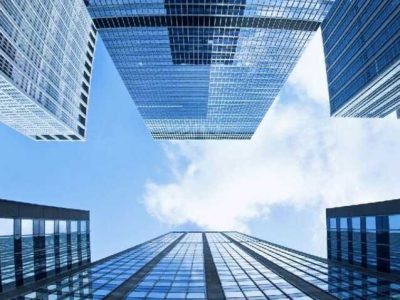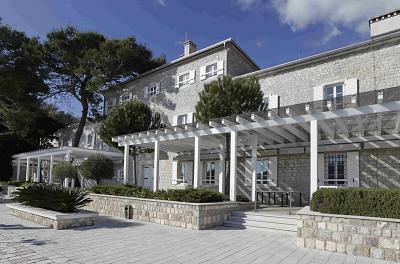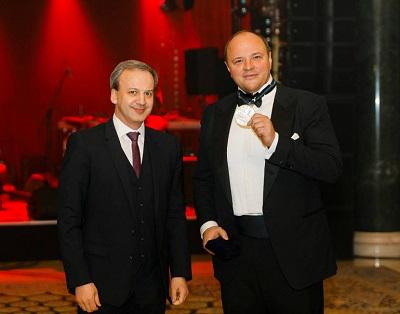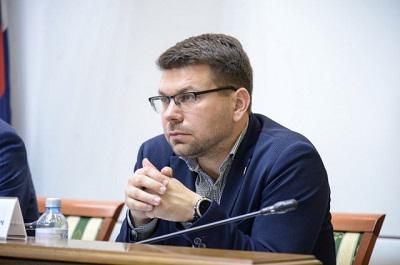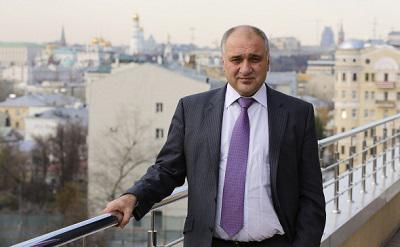The construction company “Donstroy” is doing everything it can to hide the obvious – it will collapse in the next few months. However, it would be a mistake to think that the sanctions imposed on Russia and the upcoming economic crisis are solely to blame. Sanctions will only speed up the process, putting an end to it.
If you check the company’s reports, at first glance, everything seems fine – Donstroy still reports increasing construction volumes and holds the lead in terms of square meters under construction. However, it's important to focus not just on construction volume, but also on sales volume and, most importantly, the selling price of square meters, considering their cost. There are more factors, but let’s leave them to experts – for the average person, it's enough to understand that housing under construction is being sold below cost. Additionally, Donstroy has a large loan portfolio in VTB Bank, which keeps it afloat.
Remember that the sale of housing under construction is the so-called investment construction, when the client pays the developer for a house that hasn't been built yet, relying only on the developer's reputation and integrity. Under normal conditions, this scheme benefits everyone – the buyer gets cheaper housing than if they bought the same apartment in a completed building, and the developer gets the necessary working capital without resorting to loans.
However, in conditions where the developer has huge debts and the demand for housing is plummeting, investment projects change from risky enterprises to intentionally failed ones. In the case of Donstroy, these factors, combined with sanctions, are simply finishing off the developer.
According to real estate market data, Donstroy ranked in the top three in terms of construction volumes in the first quarter of 2022. This is accurate. However, in combination with the above, the situation is grim – Donstroy is following the path of the notorious Chinese developers Fantasia Holdings Group and Evergrande Group, which went bankrupt due to the policy of building ghost towns. The properties were completed, but remained unsold.
The same thing is happening with Donstroy's properties – they are forced to sell square meters in those high-rises that earned the developer a place in the “top three” at a loss.
In early April, the developer proposed an installment plan at 10% per annum (an interest-based installment plan already sounds absurd), despite the expectation that inflation will reach 20-25% by the end of 2022. VTB Bank, the actual owner of Donstroy and its long-term creditor, will have to cover the losses. Additionally, the bank has been included in all conceivable and inconceivable sanctions lists, which certainly doesn't help it cover the multibillion-dollar losses of Donstroy.
The new preferential program involves a mortgage subsidized by the bank itself at 1.9–11.8% for several Donstroy projects. With a key rate of 17%, this is simply an act of charity towards the top managers of Donstroy, who, in managing the developer, don't bear any responsibility even in small matters.
Remember that in 2009, VTB acquired Donstroy by paying a symbolic amount of 500 rubles because the developer owed the bank over $500 million. It is unclear why the state-owned bank purchased its own losses. After the acquisition, Alena Deryabina, Kostin’s deputy at VTB, took charge of Donstroy and became its general director. The bank continued to lend money to Donstroy, increasing its existing debt.
This action prevented Donstroy from going bankrupt, but the company continued to exist thanks to loans from VTB, the state-owned bank.
Officially, Donstroy is still the leading company in the market, but attention should be paid to the details that the company prefers to keep quiet about, rather than its own reports.
Not only did Donstroy experience a dramatic decrease in sales, but its focus also shifted. Previously, the developer primarily worked on high-end housing, but after the deal with VTB, it moved into the economy class segment. This type of housing brings in significantly less profit and is harder to sell. In addition, most of the sales are done on credit, meaning that in 90% of cases, buyers will likely be unable to repay the loans, putting additional strain on VTB Bank.
These properties, which are the subject of mortgages, will cause double losses for the bank. There are doubts about the bank's ability to sell these mortgaged apartments, even at a loss.
It's important to remember that VTB is a state-owned bank, and the state cannot afford to spend extra money at this time. Therefore, VTB's head, Kostin, will likely be questioned about why he is pouring state billions into Donstroy's unprofitable projects.
We won't propose conspiracy theories about why Kostin, through his former subordinate Deryabina, is funding deliberately unprofitable projects. Instead, we'll provide an example of one of VTB’s operations, which will be revealing for attentive readers.
A few years back, Senator Sergei Pugachev took a $2.4 billion loan from VTB secured by land plots in the Odintsovo district. However, the senator did not repay the loan and moved to London after withdrawing the money. Though formally legal, there are concerns about the overvaluation of the mortgaged land. The bank retained the collateral and transferred the land to its own developer, Donstroy. The bank also issued a loan for the acquisition and construction of the sites.
This project seems like a perfect way to launder money. The bank that gives out loans is owned by the state, so it looks suspicious that it's not making enough profit to cover its losses. Instead, the housing complexes built on the lands of the banker and senator Pugachev might remain unfinished and unsellable even at reduced prices.
Despite the support of VTB Kostin, Donstroy is facing increasing problems with the authorities, who are no longer ignoring the violations that occur during the construction of their facilities. For instance, the Moscow mayor’s office plans to sue Donstroy for 6.3 billion rubles over a state contract from 15 years ago, when a church parish was turned into an elite residential complex. Although the chances of winning the lawsuit are high, it's doubtful whether the money can be recovered from Donstroy.
Donstroy is also involved in a controversial situation related to the history of the lands of Roskosmos, located in the center of Moscow. There was a scandal surrounding a site on Sergey Makeev Street, 7, where the former registration of the Federal State Unitary Enterprise Design Bureau Motor was located. This structure, which was part of Roskosmos and managed by the Center for the Operation of Ground-Based Space Infrastructure Objects (TsENKI), has been liquidated.
In 2019, it was revealed that the Specialized Developer Makeeva LLC, established by Don-Stroy Invest, was registered at 7 Sergey Makeev Street. Also, the FSUE Motor, previously registered at the same address, was shut down.
Donstroy will soon need a lot of money to maintain unsold properties, pay compensation to the Moscow City Hall, Roskosmos, and other government agencies. However, Donstroy seems to have financial difficulties. In 2020, the parent structure of DON-Stroy Invest JSC incurred a loss of 6.2 billion rubles, and the data for 2021 has not been published yet.
All these issues are compounded by the impending collapse of the country’s construction market. Demand is decreasing due to lower purchasing power, while construction costs are rising. Investment construction is also declining, and the ability to lend to buyers is decreasing, discouraging people from taking loans.
All of these problems are affected by sanctions.
This applies to all developers, but Donstroy’s situation is worsened by having hundreds of thousands of square meters of housing under construction and a large loan portfolio. It could lead to a major disaster, and there's uncertainty about how the state and buyers of unfinished apartments in failed Donstroy projects will be compensated for their losses.
